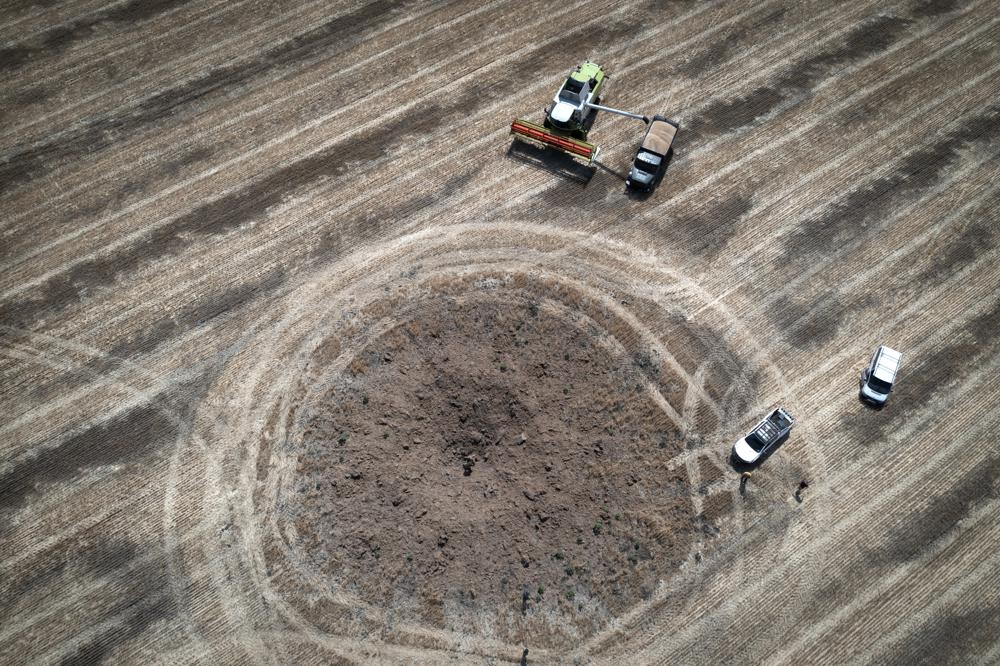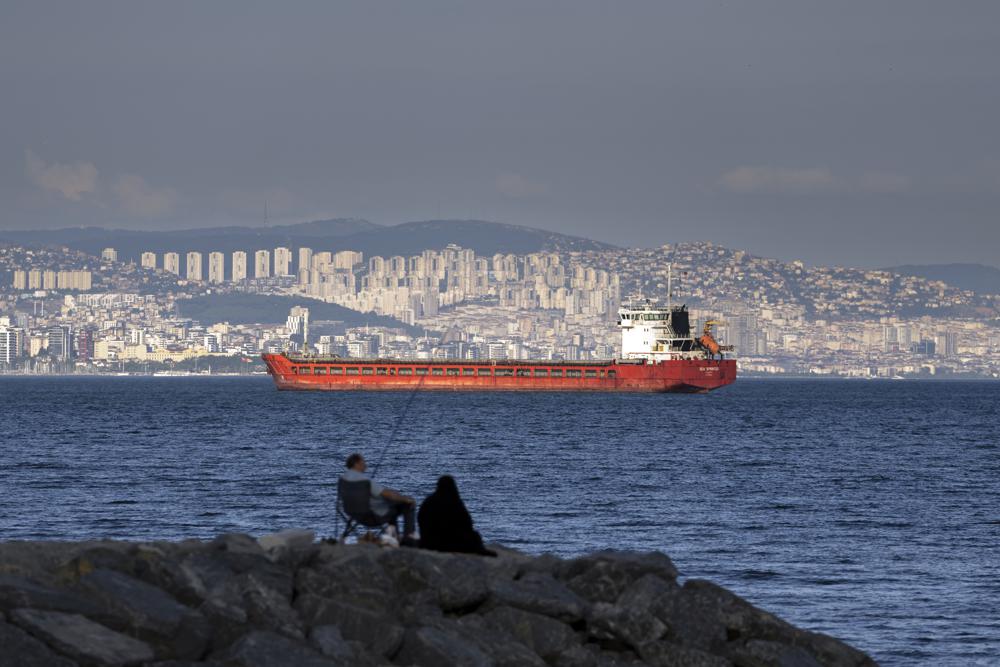ISTANBUL (AP) — Russia and Ukraine were expected to sign an agreement Friday that would allow Ukraine to resume grain shipments to world markets and Russia to export grain and fertilizers, ending a standoff that threatened world food security while the two countries are at war in Ukraine.
Ukrainian and Russian military delegations reached a tentative agreement last week on a United Nations plan that would enable Ukraine to export 22 million tons of desperately needed grain and other agricultural products that have been stuck in Black Sea ports due to the war.
U.N. Secretary-General Antonio Guterres and Turkish President Recep Tayyip Erdogan planned to oversee the signing of the agreement in Istanbul. Russian Defense Minister Sergei Shoigu and Ukraine’s infrastructure minister, Oleksandr Kubrakov, were the expected signatories, according to their governments.

Ukraine is one of the world’s largest exporters of wheat, corn and sunflower oil, but Russia’s invasion of the country and naval blockade of its ports have halted shipments. Some grain is being transported through Europe by rail, road and river, but the prices of vital commodities like wheat and barley have soared during the nearly five-month war.
The deal makes provisions for the safe passage of ships. It foresees the establishment of a control center in Istanbul, to be be staffed by U.N., Turkish, Russian and Ukrainian officials, to run and coordinate the process, Turkish officials have said. Ships would underdo inspections to ensure that are not carrying weapons.
Guterres first raised the critical need to get Ukraine’s agricultural production and Russia’s grain and fertilizer back into world markets in late April during meetings with Russian President Vladimir Putin in Moscow and Ukrainian President Volodymyr Zelenskyy in Kyiv.
He proposed a package deal in early June amid fears that the war was endangering food supplies for many developing nations and could worsen hunger for up to 181 million people.
Russian and Ukrainian officials have blamed each other for the blocked grain shipments. Moscow accused Ukraine of failing to remove sea mines at the ports to allow safe shipping and insisted on its right to check incoming ships for weapons. Ukraine has argued that Russia’s port blockade and launching of missiles from the Black Sea made any shipments unviable.
Ukraine has sought international guarantees that the Kremlin wouldn’t use the safe corridors to attack the Black Sea port of Odesa. Ukrainian authorities have also accused Russia of stealing grain from eastern Ukraine and deliberately shelling Ukrainian fields to set them on fire.
On Thursday evening, a spokesperson for Ukraine’s Foreign Ministry appeared to lay out Kyiv’s conditions for backing the plan.
Ukraine’s delegation “will support only those decisions that will guarantee the security of the southern regions of Ukraine, the strong position of the armed forces of Ukraine in the Black Sea and the safe export of Ukrainian agricultural products to world markets,” the spokesperson, Oleh Nikolenko, told reporters.
In Washington, State Department spokesman Ned Price said the U.S. welcomes the agreement in principle. “But what we’re focusing on now is holding Russia accountable for implementing this agreement and for enabling Ukrainian grain to get to world markets. It has been for far too long that Russia has enacted this blockade,” Price said.

